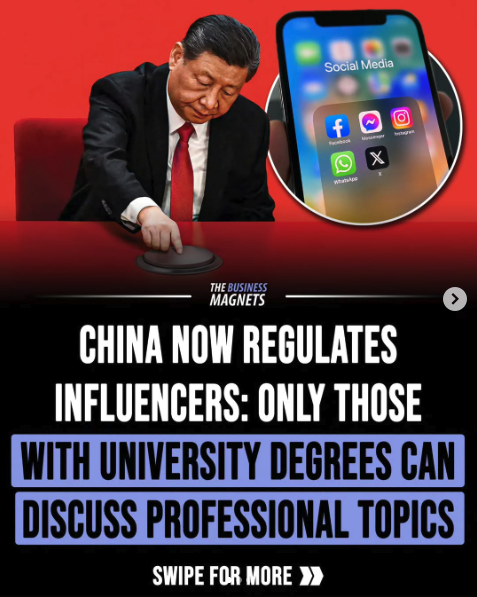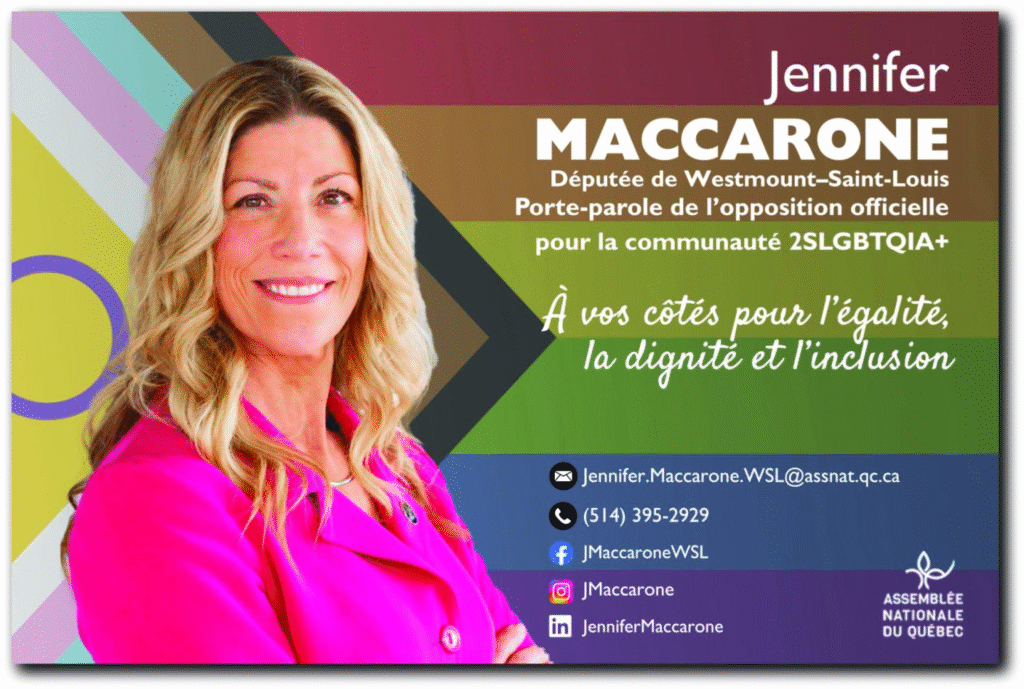
Roger-Luc Chayer (Image : Instagram thebusinessmagnets)
In a post circulating on social media over the past few days, the following announcement was made: “China is strengthening its regulation of influencers.
Anyone addressing professional topics such as medicine, finance, law, or education must now prove their qualifications.
This generally involves presenting official training, a university degree, or verified professional expertise.
Platforms like Douyin, Weibo, and Bilibili are responsible for verifying credentials. Influencers who fail to comply with these rules face account suspension or closure, as well as fines of up to 100,000 yuan (approximately $14,000).
The goal is to reduce misinformation and ensure that advice in sensitive fields comes from certified experts.”
Social media and misinformation: distinguishing fact from fiction
Over the years, social media has accustomed us to seeing just about anything from anyone. Under the pretext of democratizing communication and information sharing, hordes of fraudsters, liars, stage managers, and self-proclaimed experts in all areas have been allowed to give opinions on everything, without any oversight from authorities.
As a result, people with no competence at all have been giving legal advice in the comments to every minor legal question, or if someone mentions back pain, they receive 30,000 responses, most containing diagnoses or miracle remedies, without anyone simply recommending seeing a doctor.
By 2025, the Internet is in a lamentable state, with informational credibility close to zero.
The example of France: platform regulation and content moderation
France does not directly control all publications on social media, but it increasingly regulates their content, especially on issues of misinformation, online hate, and digital security.
Specifically, French authorities do not approve content before it goes online, but several laws impose obligations on platforms such as Facebook, X (Twitter), Instagram, TikTok, and YouTube. For example, the Avia law (partially censored by the Constitutional Council in 2020) aimed to require platforms to remove reported hateful content within 24 hours. Later, France adapted its regulations to the European Digital Services Act (DSA), which came into force in 2024, requiring large platforms to:
- promptly remove illegal content reported (hate, terrorism, child exploitation, incitement to violence, etc.);
- actively combat misinformation;
- make their algorithms more transparent;
- cooperate with French and European authorities.
In practice, this means that the French government supervises and sanctions, but does not directly censor: it delegates moderation to platforms, under threat of heavy fines if the law is not followed. In addition, institutions like ARCOM monitor compliance of platforms with national and European legislation.
Differences between France and China in social media oversight
In France, as across the European Union, the fundamental principle remains freedom of expression, framed by law. The government does not directly intervene in content but imposes rules on private platforms to remove or moderate certain types of publications: hateful speech, manifest misinformation, terrorism, child pornography, incitement to racial hatred or suicide, etc. Platforms remain free in their methods but must report to ARCOM and the European Commission. Sanctions are financial, with no systematic censorship or prior control of publications. Users can still contest removal or restriction.
In China, by contrast, the approach relies on centralized and preventive state control. Chinese social media platforms (Weibo, Douyin, WeChat, Bilibili, etc.) are legally required to filter, censor, and report any content deemed contrary to government interests or “social stability.” Platforms are directly accountable to the authorities, who have teams and algorithms monitoring publications in real time. Certain topics—politics, religion, human rights, territorial issues—are simply prohibited. Influencers must now prove their qualifications to discuss professional subjects (medicine, law, economy…), which does not exist in France.
Chinese influencers’ obligations in the health sector
It is therefore accurate to say that China requires influencers covering specific subjects such as law, education, or medicine to have verified expertise in their field. Failure to do so exposes them to technical and financial sanctions, which, in my view, is a positive measure.
What is confirmed in the publication at the top of the image
China is indeed strengthening its control over content creators in the health sector. On August 1, 2025, several state agencies—including the Cyberspace Administration and the National Health Commission—issued a notice specifically targeting accounts producing medical science content. The goal is clear: to ensure that information shared online is based on verifiable professional qualifications.
Platforms must now ensure that creators hold a medical certificate, a professional license, or a recognized institutional affiliation before publishing medical content. These accounts must also prominently display their qualifications and affiliated institution. Platforms are responsible for blocking any content from uncertified or unqualified accounts to prevent the spread of misleading or dangerous information.
The regulations also prohibit using medical science content as a cover to promote products, devices, or supplements, banning any form of disguised advertising. These measures reflect authorities’ intent to ensure that health advice on social media comes from reliable sources, protecting the public from inaccurate or potentially harmful information.
Technical and financial sanctions for uncertified accounts
This is an interesting start toward cleaning up Internet content. It would be desirable for other countries to follow China’s example and finally free us from the plague of continuously spreading false information online. Let us not forget that each state is responsible for what happens on the Internet within its national jurisdiction. Laxity is no longer acceptable!
Are LGBT influencers also monitored?
Yes, but in a much stricter and different way than the professional regulation seen for medicine, law, or finance. In China, content related to LGBT+ issues is heavily monitored and censored, even on local social media platforms like Weibo, Douyin, or Bilibili. Chinese authorities consider anything related to sexuality, sexual minorities, or “non-conforming” communities as sensitive, and platforms are legally required to filter or remove such content.
This means that LGBT+ content creators are not only exempt from proving professional qualifications (which does not really apply to these subjects), but they must also comply with strict censorship. Posts promoting LGBT+ rights, homosexual relationships, or discussions about coming out can be removed, and accounts may be suspended, blocked, or deleted.
ADVERTISING
